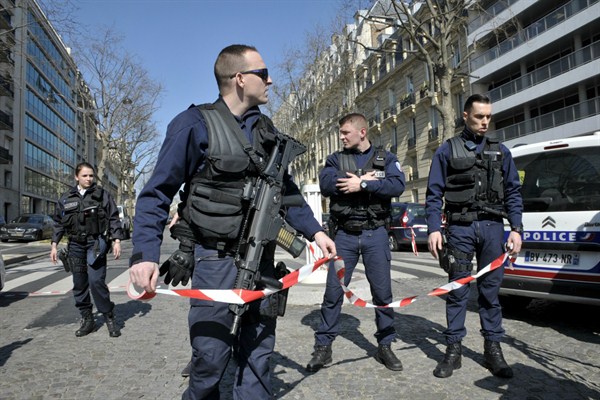On March 16, a letter bomb addressed to Germany’s finance minister, Wolfgang Schauble, was intercepted in the ministry’s building before it could go off. Its sender, according to the return address, was Adonis Georgiadis, the deputy leader of New Democracy, Greece’s right-wing opposition party. At the same time, a similar letter-bomb actually exploded at the offices of the International Monetary Fund in Paris, slightly injuring a staff member. This one, too, had been posted under the name of a New Democracy politician.
The attacks were covered in the international press, but their significance and meaning has perhaps been obscured by the relentless sequence of high-profile global news and developments of the past month. Though on a much smaller scale and intensity compared to past decades, a new generation of far-left terrorism is emerging in Greece, one that fits in with a global pattern of radicalization. Instead of being inspired by ethno-sectarian conflict, however, it is directly fueled by the very real everyday struggles of life in Greece under a European Union-imposed austerity program, although its roots can be traced before and beyond that.
The group that eventually claimed responsibility for the letter bombs, the Conspiracy Of Fire Nuclei (CFN), first emerged under this name in December 2008, when 15 days of riots followed the murder of 16-year-old Alexandros Grigoropoulos by a Greek police officer. John Brady Kiesling, an American former diplomat who has lived in Greece for many years and has written one of the most authoritative books on Greek terrorism, “Greek Urban Warriors,” suggests that “they were active before, but December 2008 really focused their efforts.”

